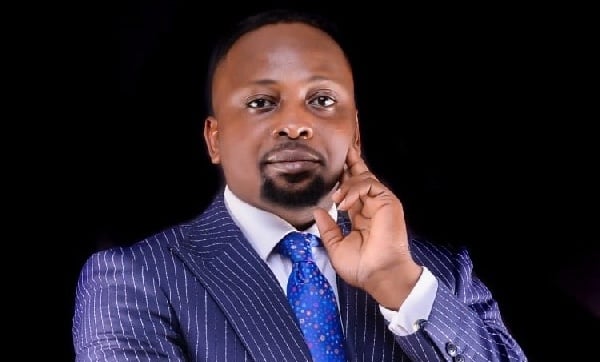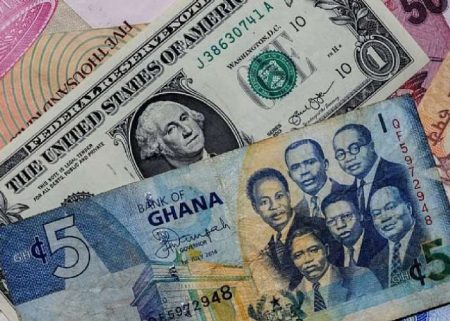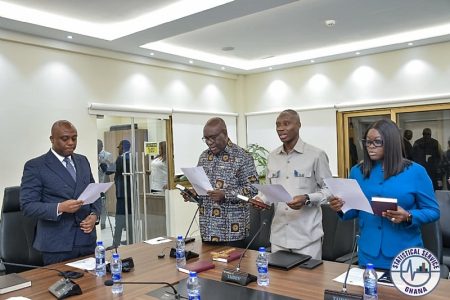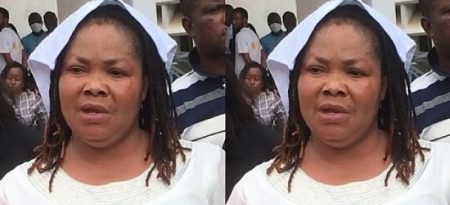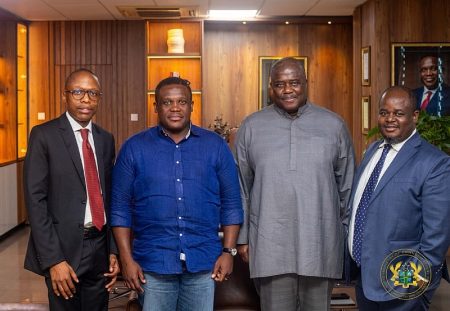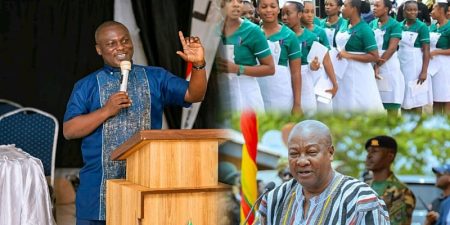The political future of Dr. Mahamudu Bawumia, former Vice President of Ghana, hangs precariously in the balance, burdened by the unpopular decisions made during the tenure of former President Nana Addo Dankwa Akufo-Addo. Ambassador Bishop Dr. Sam Owusu, a prominent figure serving as the United Nations Peace Ambassador to Ghana and Country Director for the International Association of World Peace Advocates, has voiced grave concerns about the potential damage to Dr. Bawumia’s aspirations, particularly his chances of leading the New Patriotic Party (NPP) in the 2028 elections. Dr. Owusu argues that the lingering public resentment stemming from Akufo-Addo’s policies casts a long shadow over Dr. Bawumia, despite the latter’s attempts to distance himself.
The crux of the issue lies in the perception that Dr. Bawumia, as Vice President, was complicit in the implementation of these controversial policies. While he may not have been the primary decision-maker, his close association with the Akufo-Addo administration makes it difficult for him to escape the blame. The public’s disappointment and frustration with the previous government are now being projected onto Dr. Bawumia, hindering his ability to establish himself as a fresh face for the NPP. This lingering discontent poses a significant challenge to his leadership ambitions within the party and his potential candidacy in future elections.
Ambassador Dr. Owusu points to several key decisions made by the former President that have contributed to this negative public sentiment. He highlights the refusal to reshuffle cabinet ministers, particularly the former finance minister, as a critical misstep. This inaction was perceived by many as a lack of responsiveness to public concerns and a failure to address economic challenges effectively. The stagnant leadership further fueled public discontent and contributed to the erosion of trust in the government. This perceived inertia now threatens to taint Dr. Bawumia’s image, making it challenging for him to present himself as a dynamic and responsive leader.
Among the most damaging policies cited by Dr. Owusu is the controversial E-Levy. The implementation of this electronic transaction tax sparked widespread opposition and protests across the country. Critics argued that it placed an undue burden on ordinary Ghanaians and further exacerbated economic hardships. Despite the government’s attempts to justify the levy as a necessary measure to raise revenue, the public outcry and the perceived insensitivity to the economic realities of the populace solidified the negative perception. This particular policy, according to Dr. Owusu, has had a lasting political impact, particularly on Dr. Bawumia, who is seen as having been closely associated with its implementation.
The fallout from these unpopular policies continues to haunt Dr. Bawumia’s political image. The public associates him with the challenges faced during the Akufo-Addo era, making it difficult for him to gain the trust and support necessary for a successful bid for party leadership or a presidential run. The perception of him as part of the “old guard” presents a significant hurdle, as the electorate often seeks new leadership and fresh perspectives after a period of dissatisfaction with the incumbent government. Dr. Bawumia now faces the daunting task of separating himself from the legacy of the previous administration and convincing the public that he represents a departure from the policies that caused such widespread discontent.
Ambassador Dr. Owusu’s candid assessment of the situation calls for drastic measures. He urges former President Akufo-Addo to publicly apologize to Ghanaians and members of the NPP for what he terms the “damaging legacy” of his administration. Such a gesture, while potentially challenging, could be a crucial step towards mitigating the public anger and creating space for Dr. Bawumia to rebuild trust and present himself as a viable leader. Whether or not such an apology would be forthcoming remains to be seen, but the underlying message is clear: Dr. Bawumia’s political future hinges on his ability to navigate the complex legacy of the Akufo-Addo era and convince the public that he offers a different path forward. He must actively address the concerns raised, distance himself from the unpopular policies, and demonstrate a commitment to a new direction if he hopes to achieve his political ambitions.





